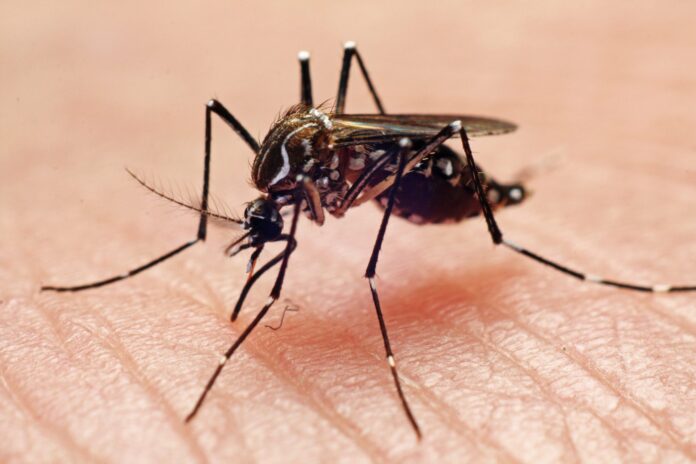AUBURN UNIVERSITY, Ala. – No one likes dealing with mosquitoes. As potential vectors of diseases, controlling mosquito populations is an important aspect of human health. As reported in Scientific Reports, new research from the United Kingdom suggests that this task may prove to be more difficult than ever.
The Findings
Xing Ping Hu, an Alabama Cooperative Extension System entomologist, said the UK researchers determined mosquitos can remember odors that they associate with bad things.
“The research found that these mosquitos are capable of learning to avoid the toxic smell of pesticides, even if it means starvation,” Hu said. “After being exposed to the odor of insecticides, the mosquitos remembered the smell and stayed away from the odor for at least 24 hours.”
The two mosquito species studied were the yellow fever mosquito and the Southern house mosquito. Both of these species are common in Alabama.
The Impact
Before now, chemical resistance was thought to be the only way a pesticide could become less effective. Hu said the industry has relied on a limited number of chemical control options for decades. Because of this, mosquitos have indeed built up a genetic resistance to most of the commonly used options.
“This genetic resistance has made pesticides less effective and threatened the success of mosquito control programs,” she said.
Researchers are coining this newly discovered pattern behavioral resistance. This form of resistance could have major impacts on an already-unstable control ideology.
“These new findings show that mosquitoes are far more complex than we previously thought,” Hu said. “This observed avoidance of insecticides further complicate efforts to control populations of mosquitos in areas with heavy burdens of mosquito-borne diseases.”
To better understand this behavioral resistance, researchers are now working on probing mosquito brains. Hu said these new findings may help develop different strategies for deploying odor compounds.
Prevention is Key to Protection
While the future of mosquito-control programs is questionable, it is important for individuals to take the needed steps now to protect themselves.
“The most effective way to avoid getting sick from mosquito-vectored diseases is to prevent mosquito bites,” Hu said. “The primary prevention methods recommended by the CDC include wearing protective clothing, avoiding high-arthropod areas, keeping mosquitos outside and using EPA-approved repellents.”
More information on mosquito-prevention methods is available at https://www.aces.edu/blog/topics/health/methods-to-effectively-protect-you-from-mosquito-bites/.





























